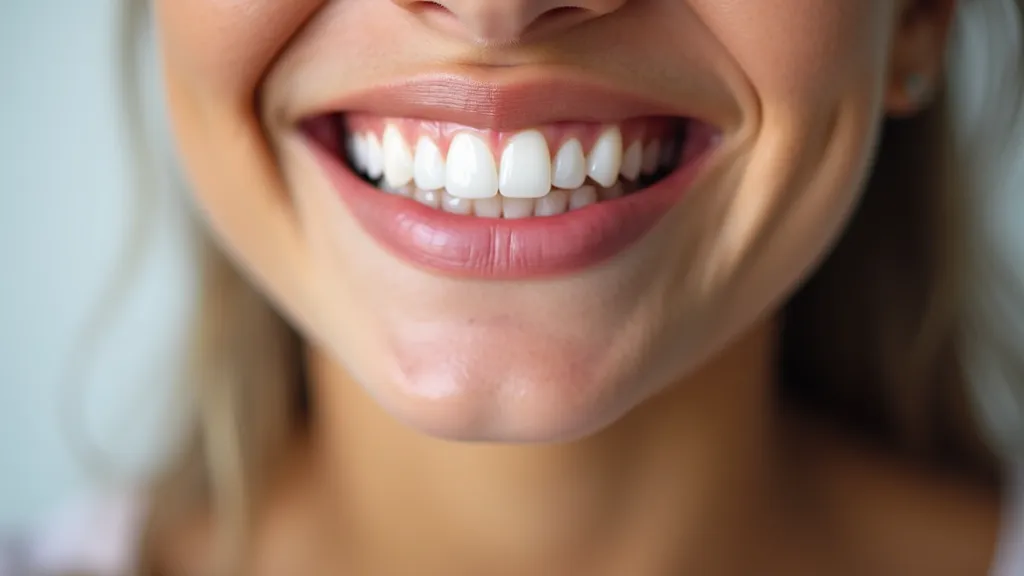Discover effective strategies to keep your teeth strong and bright with our comprehensive advice on dental care.

Maintaining healthy teeth is essential for overall well-being and confidence. A bright smile not only enhances your appearance but also contributes to your self-esteem. This article outlines practical tips and top practices to ensure your dental health remains at its peak.
Regular dental check-ups are crucial for maintaining oral health. Dentists can identify potential issues early on, preventing them from developing into more serious problems. Aim for at least two visits per year to your dentist for a thorough examination and cleaning. During these visits, your dentist will check for cavities, gum disease, and other oral health issues, providing you with guidance tailored to your specific needs.
Adopting a consistent daily oral care routine is vital for preventing cavities and gum disease. Here are essential practices to include:
Selecting the right dental products can significantly impact your oral health. Look for toothpaste with fluoride, which strengthens tooth enamel and helps prevent decay. Also, choose a toothbrush with soft bristles to avoid damaging your gums. Electric toothbrushes can also be a great investment, as they can provide a more thorough clean compared to manual brushing.
When selecting mouthwash, opt for one that is alcohol-free to avoid drying out your mouth, as a moist environment is essential for reducing the risk of cavities. Additionally, consider using a tongue scraper to further enhance your oral hygiene routine.
Your diet plays a crucial role in dental health. Consuming a balanced diet rich in vitamins and minerals can help strengthen your teeth. Consider the following dietary tips:
Fluoride is a mineral that plays a significant role in preventing tooth decay. It helps remineralize enamel and makes teeth more resistant to acid attacks from plaque bacteria. Ensure your toothpaste contains fluoride and consider fluoride treatments from your dentist if needed. Additionally, some communities have fluoridated water, which can further benefit your dental health.
Certain habits can negatively impact your dental health. Recognizing and addressing these habits is essential:
If you participate in contact sports, consider wearing a mouthguard to protect your teeth from injury. Custom-fitted mouthguards provided by your dentist are more comfortable and effective than over-the-counter options. They can significantly reduce the risk of chipped teeth or injuries to your jaw.
Smoking can lead to numerous dental issues, including gum disease, tooth discoloration, and bad breath. Quitting smoking can significantly improve your oral health and overall well-being. Additionally, smoking is linked to oral cancers, making cessation even more critical for long-term health.
Being aware of the signs of dental issues can lead to early intervention. Look out for:
Dental sealants are a protective coating applied to the chewing surfaces of back teeth. They act as a barrier against cavities and are particularly beneficial for children and teenagers. Sealants can significantly reduce the risk of decay in these vulnerable areas and are a quick and painless procedure. Discuss with your dentist if sealants are a suitable option for you or your children.
As you age, your dental health needs may change. It's essential to adapt your oral care routine accordingly:
Additionally, older adults may need to pay extra attention to denture care if applicable. Proper hygiene is essential to prevent gum disease and ensure the longevity of dental appliances.
The top way to prevent cavities is to maintain a consistent oral care routine, limit sugary foods, and visit your dentist regularly. Additionally, consider using fluoride toothpaste and mouthwash to enhance your protective measures.
Replace your toothbrush every three to four months or sooner if the bristles are frayed. A worn toothbrush is less effective at cleaning your teeth and may harbor bacteria.
Yes, daily flossing is essential for removing plaque between teeth and preventing gum disease. Flossing helps to clean areas that your toothbrush cannot reach, keeping your gums healthy.
Absolutely. A balanced diet can strengthen your teeth and help prevent decay, while sugary foods can lead to cavities. Additionally, nutrients such as calcium and phosphorus are vital for maintaining strong teeth and bones.
If you experience tooth sensitivity, consult your dentist to determine the underlying cause and explore treatment options. Sensitivity can result from enamel erosion, gum recession, or other issues that need addressing.
Dental care can be expensive, and understanding your dental insurance coverage is essential for managing costs. Most insurance plans cover preventive care, such as check-ups and cleanings, but coverage for other procedures may vary. Always check your policy details and ask your dentist about financing options or payment plans if you need extensive work.
Some dental offices offer in-house financing plans that allow you to pay for services over time, making it more manageable to receive necessary treatments. Consider setting up a Health Savings Account (HSA) if your employer offers one, as it can provide tax advantages for medical expenses, including dental care.
Maintaining healthy teeth requires a combination of good oral hygiene, regular dental visits, and a balanced diet. By adopting these practices, you can ensure a bright smile and good dental health for years to come. Prioritizing your dental care not only improves your oral health but also contributes to your overall health and well-being. Remember, taking care of your teeth is an investment in your future, and it is never too late to start making positive changes.
Additionally, consider educating yourself about the latest developments in dental health, such as new treatments, technologies, and preventive measures. Staying informed can empower you to make better decisions regarding your oral health and enhance your overall quality of life.
Ultimately, the journey to maintaining excellent dental health is ongoing. Regular assessment of your oral health, adaptability to changes, and commitment to good practices will ensure that your smile remains bright and your teeth stay healthy throughout your life.
So, embrace the journey towards better dental health today, and make it an integral part of your daily routine. Your smile will thank you!


